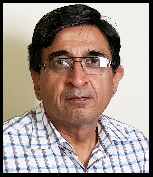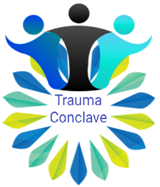|
Originating from Greek language the word “trauma” means, “wound”. A human’s response to trauma has been thought to be biological even though it stems from a psychological source. Pavlov described it as a lasting psychological alteration within the brain. When an individual has experienced a trauma in his or her life, the central nervous system recalls that trauma and reacts when any other overwhelming, threatening or uncontrollable situation occurs again. Regardless of the event, an individual who has experienced trauma is going to exhibit poor tolerance for an arousing situation.
Psychological traumatic life event is a broad term that can encompass a multitude of experiences and situations, such as experiencing trafficking, physical and sexual abuse/assaults, war, torture, natural disasters, kidnapping, sudden death in family, sudden loss of limb, life threatening chronic illness, as well as witnessing murder, domestic violence, accidents, and dead bodies. Contemporary research on trauma psychology has included childhood experiences of abuse and neglect as traumatic stressors. Furthermore, to be perceived as traumatic, the experience must be sufficiently intense to defeat defense mechanisms and shatter fundamental assumptions one has about oneself and the world.
The cross cultural research in child and adolescent mental health in last 3 decades has reached at a consensus regarding the direct relationship of psychosocial adversities in childhood and resulting psychological trauma, affecting almost all aspects of life and development of the children and adolescents. However, childhood adversities and resulting trauma is overlooked, underestimated and underreported due to various reasons in the developing countries, although media and official data indicates the higher prevalence of such adversities in terms of exposure of children to natural and man-made disasters, domestic violence, emotional abuse, trafficking, domestic violence, vehicular accidents, chronic life threatening illness of self or significant family members or sudden death of a parent or sibling.
In addition, although India does not have an official data on children with histories of two or more types of traumatic exposures (witnessing domestic violence and surviving an abuse or trafficking and then sexually assaulted are common) are found to exhibit more symptoms of post-traumatic stress and other mental health problems as compared to children without such histories. Previous research statistics have reported a high incidence of childhood trauma among the psychiatric patients. And the deleterious effects of adverse physical and sexual abusive experiences during childhood has been well documented, revealing an association with a variety of psychiatric illnesses later on including depression, anxiety, substance abuse, psychosis and suicide.
|

Organizing Chairperson
Prof. R.K. Chadda, HOD, Psychiatry&
Chief NDDTC, AIIMS, New Delhi
|

Organizing Secretary
Dr. Sujata Satapathy, Associate Professor,
Clinical Psychology, Dept. of Psychiatry, AIIMS.
|
|
CONTACT DETAILS
Trauma Conclave Secretariat: # 4085, 4th Floor, Teaching Block, Dept. of Psychiatry,
AIIMS, New Delhi-29.
E-mail: traumaconclave@gmail.com. Mobile: 09868397141, 09899380774,
08587951056, 08826719746.
|



.gif)
.gif)
.gif)



.gif)
.gif)
.gif)